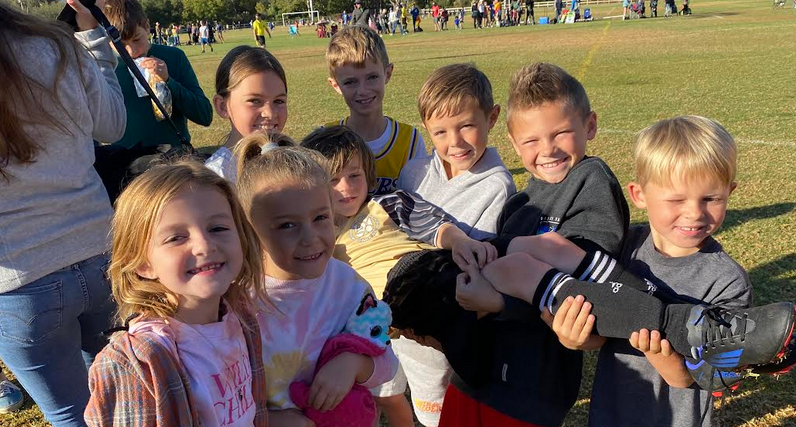Youth coaching: where heroes inspire heroes
February 2, 2025

OPINION by ANNIE BRAFF
In youth sports, the scoreboard looms large over every game, its numbers seeming to define success or failure. But for truly exceptional coaches, victories are not tallied in points—they are measured in moments that echo across decades.
Twenty-five years ago, he was just another kid on the court, shy and timid, and yet to score his first basket of the season. With his team comfortably ahead, their coach—my father—made a simple announcement: “We’re one basket away from having every single player on this team score today. If everyone scores, I’ll take you all for milkshakes.”
What happened next transcended basketball. The entire team rallied around their teammate who had not scored all season, setting screens and passing the ball to him until he scored not once, but several times.
Twenty-five years later, his father called my dad, his voice cracked with emotion. “What happened in that game—that single game—changed my son’s life forever. Something awakened in him that day when his teammates united to help him succeed. That newfound confidence transformed everything—his academics improved, his relationships deepened, and his leadership abilities emerged.”
Today, he stands tall as an Army Ranger, leading others with the same assurance he discovered on that basketball court decades ago, raising his own family with the lessons he learned from a coach who saw beyond the scoreboard.
At age 10, I saw this transformation firsthand. Despite endless hours of practicing at home, our team relied solely on our most athletic player to bring the ball up the court. But it was not just about having the best player always bring the ball up—they needed to learn how to be a team player too, and the rest of the players needed a chance to grow.
It took my father suggesting this perspective to our coach for things to change. That simple shift led to me scoring 12 points in one game. While the details of that day have faded with time, the surge of confidence when those shots fell still burns bright decades later.
That same coach also thanked my father, sharing how that conversation had transformed his approach to coaching and opened his eyes to the deeper impact he could have on young athletes.
Make no mistake—my father was fiercely competitive, pushing his players and his own children to excel. He knew the value of hard work and the thrill of victory. But he also understood that there is a time and place for that competitive fire—and these early years should be about opportunity and growth for everyone.
Elementary school sports are where fundamentals take root—not just skills like dribbling and shooting, but teamwork, perseverance, and self-belief.
The magic of youth sports lies in those perfect opportunities—when your team is up by a lot or down by a lot, when the pressure eases and possibility beckons. These are the moments to put in that quiet backup guard, to let your third-string quarterback command the huddle, to resist pressing that struggling opponent.
Watch for these golden windows, these chances to transform a young life. They’re worth more than any margin of victory.
The true measure of coaching success is not in championship trophies or undefeated seasons. It is in the phone calls you might receive years later, from parents telling you how that one game, that one moment, that one decision to believe in their child changed everything.
And sometimes, these opportunities unlock more than just confidence—they reveal greatness hiding in plain sight. Take Alex Smith at the University of Utah. He was just another backup quarterback on a struggling 5-6 team when Urban Meyer arrived in 2003.
Alex had not been highly recruited and seemed unlikely to be the starting quarterback. Meyer did not just give Smith playing time—he gave him the keys to the offense. Smith responded by orchestrating one of college football’s great transformations, taking Utah from unranked to an undefeated season and fourth national ranking.
That backup quarterback became the NFL’s one overall draft pick—but more than a story of athletic achievement, it is a testament to what can happen when someone shows they believe in you.
These lessons continue to resonate on courts and fields today. My own son, now 11, plays under coach Rob Morrow, who embodies this same philosophy: “The best part about youth sports is seeing the kids grow from the beginning of season to the end of the season. All kids start at different points and all kids have something to work on or something to learn. They learn new skills and make new friends, and they see the benefits of teamwork. They learn to push themselves and recognize the results from the hard work and from trying new things.”
It is a testament that my father’s approach to youth coaching—where growth and confidence matter more than the scoreboard—lives on in a new generation of coaches.
To my father, who inspired this story and countless others like it, your legacy lives on not just in the lives you touched directly, but in the ripple effect of every coach and athlete you influenced to look beyond the scoreboard. You understood that while championships collect dust, the moments you create and the confidence you build in young athletes shine forever.
Today, somewhere on a court, field, or diamond, another coach has the chance to create such a moment. The question is not whether these opportunities exist—it is whether that coach will have the wisdom to seize them.
Annie Braff is a San Luis Obispo resident who loves watching her son’s activities. She is slated to graduate law school in May 2026.






The comments below represent the opinion of the writer and do not represent the views or policies of CalCoastNews.com. Please address the Policies, events and arguments, not the person. Constructive debate is good; mockery, taunting, and name calling is not. Comment Guidelines